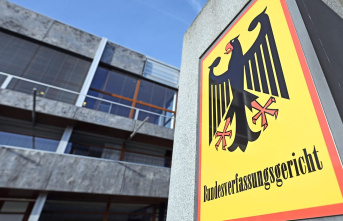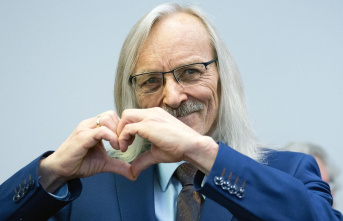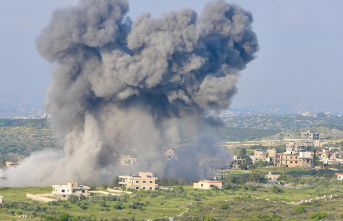At the height of the Corona-lock downs the Welsh main street was in the William Lloyd Williams' butcher shop, as well as empty of people. Nevertheless, customers flocked to Williams, because you wanted to buy meat, you could be sure that it really comes "next door”.
Williams, slaughters local cattle in his small slaughterhouse right next to the pasture in Machynlleth's picturesque Dyfi valley, where he keeps his own cows and sheep. The Store itself is only a short walk away.
read more: https://www.dw.com/de/fleischindustrie-verbot-werkvertr%C3%A4ge-leiharbeit-in-schlachth%C3%B6fen-coronavirus-deutschland/a-54370043
"Wil keeps the animals in a free box – so you have no Stress," says Joy Neal from the nearby Glandyfi. "He is good to the animals and provides the Locals with good meat, and I mean, he is appreciated very much!”
consumers do not often think rather about how the animal is killed, the meat you buy. But Neal is confident that the meat comes from a regional slaughterhouse. "There are only very few of them, and I very much hope that we have this here," she says.
A business model is in the lower gear
Williams' abattoir since the 1950s, owned by the family. The craft he learned from his father. At the age of eight years, he has worn the sheep's heads out. At 17, he started a proper training.
His company of foot has survived - and-mouth disease and BSE (the so-called "mad cow disease"). Overall, both of these diseases have cost the UK agricultural industry billions of pounds. And now Covid-19. But it is and was always a struggle.
In the 1980s, in the County of Montgomeryshire seven regional slaughterhouses, today, Williams is the only one. The Sustainable Food Trust (SFT) is an organization that campaigns for sustainable food and 2018, a campaign for regional slaughterhouses started. According to him, there were in the whole of the UK between 1930 and 2017, a decline in local Abattoirs to 99 percent. The small companies are not profitable enough to be able to work with supermarkets to compete. And also the growing burden of more paperwork and bureaucracy complicates their situation. The SFT says that many of the rules have emerged in large slaughterhouses, and "for small slaughterhouses is unnecessary or inappropriate" to be.
"We have destroyed the network of the local infrastructure that was previously available," says STF-founder Patrick Holden. "This is not to say that we can't build it according to Covid maybe different again. But we can only do that if the connection between the actual producers and the consumers is there. While slaughterhouses are a critical point, because you can have without regional abattoirs, meat from species – appropriate husbandry - which includes the regional slaughter.
read more: https://www.dw.com/de/wie-sich-corona-krise-und-toennies-skandal-auf-schweinebauern-auswirken/a-54123893
Gently for the cattle, and the planetAccording to the state of the British food Standards Agency, there are most of the problems with the welfare of animals during Transport from the farm to the slaughterhouse. In the of the Royal Society for the Prevention of Cruelty to Animals (Royal society for the prevention of cruelty to animals) laid down Standards is, however, that cattle should be slaughtered at the place of attitude.
the model of the mass animal farming is not only bad for animal welfare. Because if the animals are closely Packed together, the risk of disease is large. To minimize this, give the farmers the animals antibiotics. Add to that the huge amounts of feed - grain and protein-rich soy, which is grown in mono-cultures. The fields need to be treated agro-chemical, to keep out pests. This leads to a deterioration of soil quality, pollution and loss of biodiversity.
read more: https://www.dw.com/de/kommentar-corona-bei-t%C3%B6nnies-nicht-mehr-wegsehen-in-der-fleischindustrie/a-54031353
The farmers, the meat of which Williams sold are listed on a sign in his shop window, which is updated from week to week. The whole of the cattle it slaughters comes from farms within 20 miles, most of which are less than ten miles. Was it fed mainly with Grass.
"The animals rest after the arrival of a night with me. You are standing on clean straw and water. And it is a short way from the field to the slaughterhouse," he says. "The Kill is the task, but this needs to happen, without any kind of torments connected”.
Political recognitionBy the British government, there was historically little support for the preservation of local slaughterhouses. In the All-Party Parliamentary Group for Animal Welfare (APGAW) are Lords and members of Parliament, organized for the protection of animals. You published in June 2020, a Report, setting out clearly why local abattoirs are important.
A spokesman for the UK Department for environment, food and rural Affairs of the DW reported that there were "currently a Review of the relevant regulations and the APGAW report into consideration will."
In the year 2018, the Welsh government introduced the investment program "Small Slaughterhouse Food Business Investment Scheme" for small slaughterhouses to support the sector. Currently, it is discussed about Changes in the British agriculture act and also on the question of whether the battles should be included in the list of activities, the financial support to get.
"It's a great feeling to obtain this valuable recognition," says Williams. "But there is still much to do."
And the pandemic has made the urgency of this task more clearly. "If you look at the industrial farming we see that it contributes to the emergence, spread and amplification of disease,” says Peter Stevenson, of the animal welfare organization Compassion in World Farming.
factory similar meat processing plants around the globe have become Covid-19-Hotspots, probably due to the low temperatures and cramped conditions there, the animal rights group Peta UK.
Williams hopes to understand that the pandemic has helped the customers, why local food is so important. "And to have local meat, you need a regional slaughterhouse," he says.
The history with saleLocal businesses can't compete on price with industrial agriculture. But there are countless costs that do not appear on the price tags of the super markets. It is a question of consequences of industrial agriculture - both in environmental terms and in terms of the local economy, which suffers when the production of food is shifted to large, centralized farms.
"Major retailers talk of economies of scale, but in reality, the food industry cause harm to the people and the social fabric locally," says pick. "Short-term gains on one side are long-term costs on the other side. And we are only just beginning to be aware of that."
The animal husbandry is for 14.5% of global greenhouse gas emissions, and cattle farming for the production of meat and milk products is, according to the United Nations for 65%. If you do it right, can contribute to the breeding of cattle to healthier soils, and the atmosphere of carbon dioxide to escape and in the ground.
If we keep eating less meat and meat from producers, the animals appropriate to the species, we can reduce the negative impact on the environment drastically. For more and more consumers, it is important to know where food has come from. The history of origin is a story told to Williams for decades, as his father before him has done.
"The farmers not to sell the product, sell the story: 'These are my children, and this is the slaughterhouse, which is five miles away. If this story involves a distance of more than 20 miles, not more, the product is pet friendly and the value is low," says Williams.
author: Alexandra Genova
*The contribution of "Regional slaughterhouses belong to the concept of animal welfare. You have to fight for Survival" is published by Deutsche Welle. Contact with the executives here.
Deutsche Welle Date Of Update: 06 August 2020, 06:26










